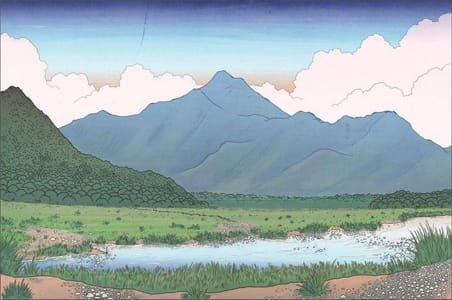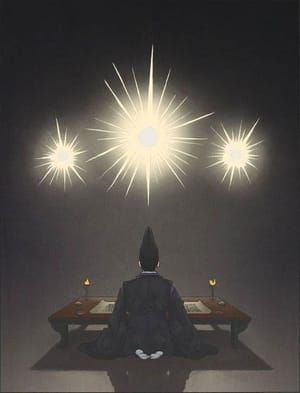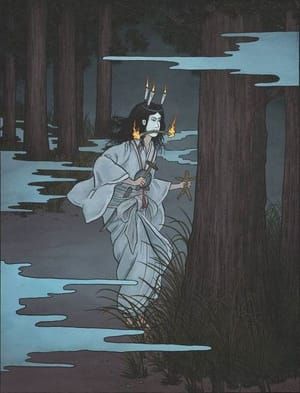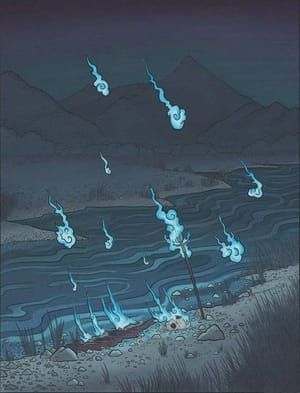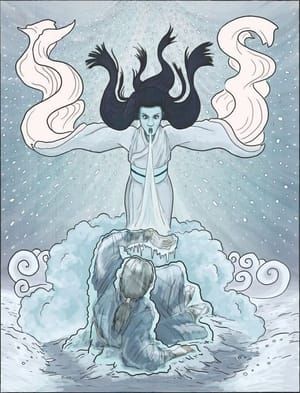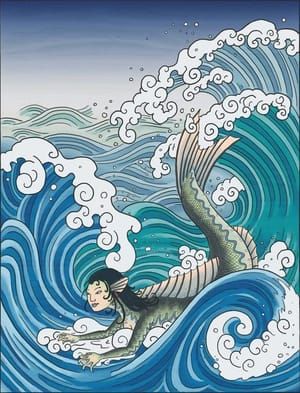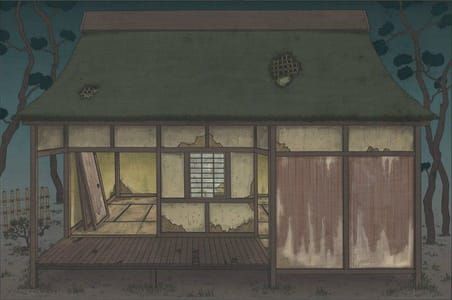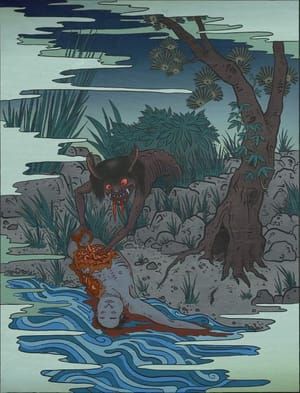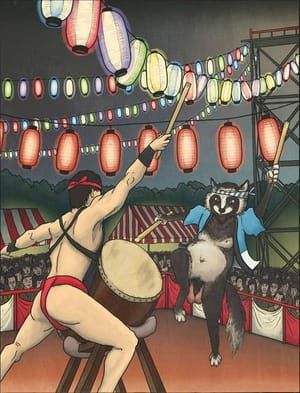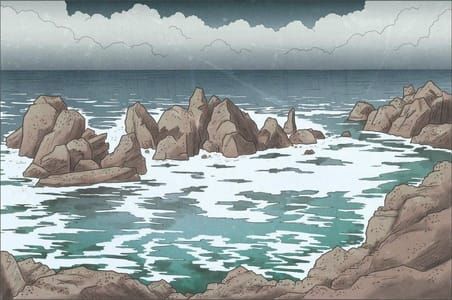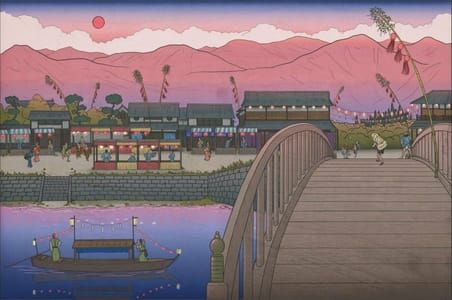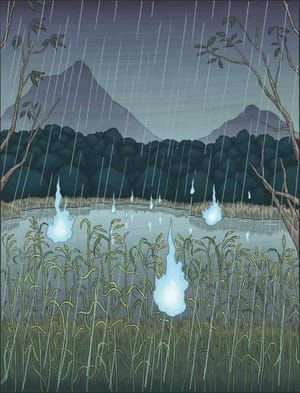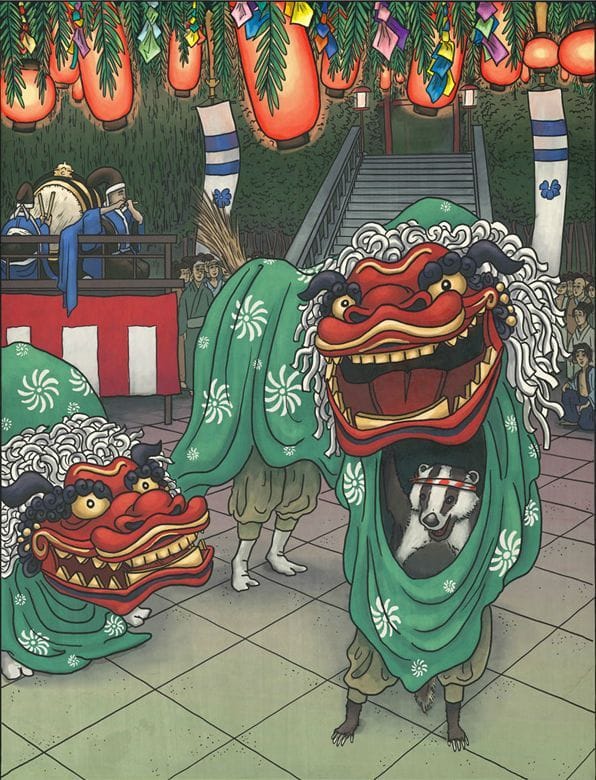

Mujina, 2013
Matthew Meyer
貉
Mujina, or badgers, live in the mountains, generally farm from human society. These days, ordinary badgers are usually called anaguma, while the term mujina usually refers to their yokai form. They are frequently confused with tanuki because of their similar size, appearance, and magical prowess. Additionally, in some regions tanuki are called mujina, while mujina are called tanuki. In others, the term mami is used to apply to both animals.
Mujina are a slightly less famous as yokai than other shape-changing animals. They are very shy, and do not normally like to be seen by or interact with humans. Mujina encounters are much less common than those with other animal yokai. The few mujina which do live among human society take great care not to betray their disguise in any way, unlike other animals which are often much more careless.
When it is dark and quiet, and there are no humans around, it is said that mujina like to shift into a humanoid form – usually that of a young boy wearing a tiny kimono – and sing songs in the street. If approached by a stranger, they run away into the darkness and transform back into animal form.
The most well-known form mujina take is that of a nopperabō, a seemingly normal human form, but with no facial features whatsoever. They use this form to scare and panic humans who wander mountain or village roads at night time. Because of this, the two yokai are often confused, and noppera-bō are sometimes referred to mistakenly as mujina. However, other animal yokai do take up this same form, and there are non-animal noppera-bō as well, so care should be taken to avoid this misunderstanding.
Matthew Meyer
artistArthur
Wait what?
